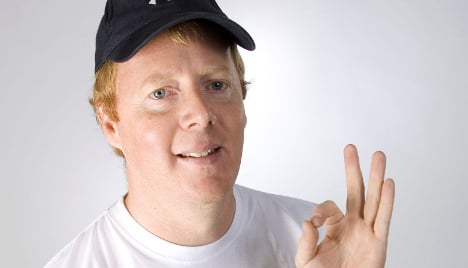Doyle gets Germany’s biggest comedy clubs giggling, has competed on the German version of Star Search and most recently hosted broadcaster WDR’s I Love Deutschland. His latest book, which promises to be full of keen intercultural insight, is due out next year.
Name:
John Doyle
Age:
46
Where do you live?
Cologne
Where are you from originally?
Jefferson Township, New Jersey
What did you do before coming to Germany?
I was in the Navy, and then worked as an air traffic controller before going to college to study broadcasting. I met an Austrian exchange student there and started learning German. I moved to Germany in 1991, so I’ve been here for 18 years now.
What was your first job here?
I worked as a freelancer for Deutsche Welle Radio, which is Germany’s version of Voice of America or BBC World Service. I worked in the English Service and did reports and some hosting, which I still do.
How did the leap from journalism to German-language comedy come about?
I remember seeing some Germans on TV, and I thinking, I could do that, and it could be cool. And then I started doing it: I did an open mic, went to another open mic. The motivation was being heard, because in radio I had the feeling that I wasn’t so sure.
What is your life like as a comedian?
You’re always thinking about new material, something in your life that’s relevant to your audience. It’s about re-examining things. When it works, it’s a nice position to be in because you’re in the supermarket and you’re annoyed by something, and then you think, ‘Hey wait a minute, I can maybe make this funny.’ You’ve got a gold mine out there and just have to find the nuggets.
What is your relationship to the German language?
I remember comedy being a way to get over my insecurity of speaking this language that I didn’t feel so secure in. Somehow, if I make it playful, or make a mistake and make a jerk out of myself, I can always say, ‘Well, I didn’t mean it that way.’ Others who are more serious had a harder time learning than I did.
What are the most rewarding aspects of your work here?
The feeling that I’ve been able to communicate with people. When people laugh, I feel like I’m not wasting my time, that I’m not as lonely, I’m not as homesick. I’m where I should be. The flip side of the coin in that when it flops, then I go back to asking myself, ‘What am I doing in this country? Why am I wasting my life in this country?’ But for the most part I feel at home here.
What’s the best advice you would give someone trying to make it in Germany?
Be patient. Because once you get the Germans, you’ll never let them go. Once you’ve got Helmut, you’ve got Helmut for life. Helmut will visit your grave. Bob, Steve and Jim from the States? They’re like, ‘Catch ya’ on the flip side!’ But Helmut, he’s there. He’s sweeping the leaves off your plot and planting flowers. You have to just give them a chance. Germans are people too.



 Please whitelist us to continue reading.
Please whitelist us to continue reading.
Member comments